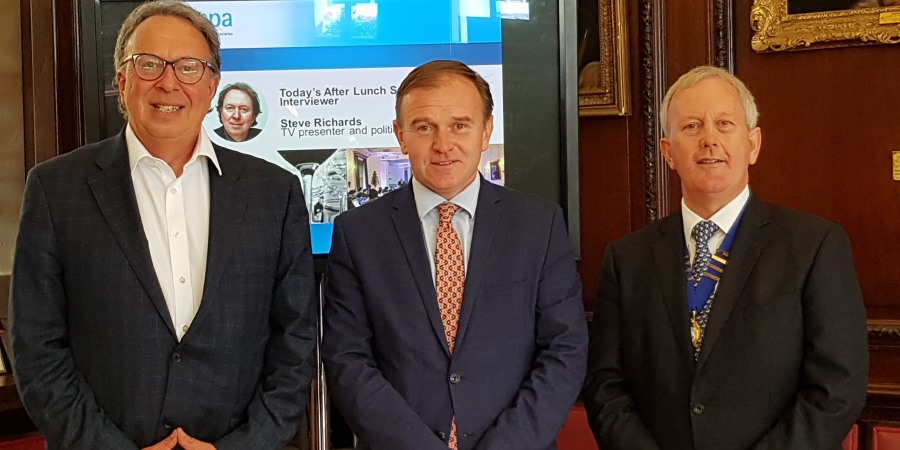The Annual British Meat Processors Association (BMPA) Conference held in London on Wednesday 6th June provided the springboard for discussions around the key issues currently facing the British meat industry and Brexit.
Delegates were given an opportunity to pose direct questions to MP George Eustice, Minister of State for Agriculture at Defra; they also challenged both Heather Hancock and Jason Feeney from the Food Standards Agency (FSA) about their plans relating to how the regulator will be working with Government and the Industry moving forward.
Mr Eustice, in a Q&A style interview with Journalist Steve Richards, said that Britain should stand firm on higher standards and ‘not get spooked’ by the demands of other prospective trading partners. He stressed that it’s “up to us to set the terms of access” to our market.
The MP also sought to re-assure the gathered meat industry executives that this would be helped by “refocusing the subsidy regime to support animal welfare” in the new agricultural policy currently being debated. He suggested Government, could also “loosen the reigns on TF3 and TF5 visas” post Brexit to ease labour shortages and further support the industry.
On the Irish Border issue he was challenged by Andrew Kuyt of the PTF, a member of the audience, who pointed out that this is a ‘Catch 22’ situation. Government must be able to explain what the border agreement looks like before Parliament can vote on the withdrawal. The minister explained that if we don’t get an agreement, it would then be open to the UK to “unilaterally adopt a risk-based border approach” but, he added, there is no guarantee that the EU would reciprocate.
Another unresolved issue is that of our trade deals with 3rd party countries. Once we leave, it’s not clear if these agreements will continue to be honoured as the deals were set up with the UK as a member of the EU. Mr Eustice suggested that, once we leave, we would have to bi-laterally re-agree all those 3rd party agreements as they roll-over.

FSA’s Jason Feeney and Heather Hancock.
In a panel discussion and Q&A with Food Standards Agency executives Heather Hancock and Jason Feeney, they sent a clear message that, under their leadership, the Regulator will be less “isolated” and will work much more collaboratively with industry, Government, and Local Authorities, to pursue a common goal. They stressed that: “It’s about listening and engaging and having respect for the relationship and we are determined that the industry voice will be heard, especially where there are disagreements.” They also re-assured the audience that the other voices that will be heard are those of whistle-blowers who step up to the mark when they see failings in compliance and bad practices.
A questioner from the audience suggested that there is still a significant reluctance to come forward with intelligence to FSA, but Ms Hancock and Mr Feeney pointed out that there’s no advantage to turning a blind eye. It merely encourages people to flout the rules if they see others not being investigated and punished. The FSA chiefs gave emphatic assurance that anyone coming forward with a complaint to their National Food Crime Unit, which is to be expanded, would be given complete anonymity and confidentiality.
Heather Hancock also touched on an issue that is only set to grow and which BMPA and many others in the industry recognise as significant. When asked about the public’s changing attitudes to meat and the narrative that’s developing in the media she said that “meat is emotive…If that narrative builds [then] that’s the reality”.
BMPA have confirmed that over the coming weeks it will be picking up on all the issues raised at the conference and working with members and the wider industry to tackle them.









